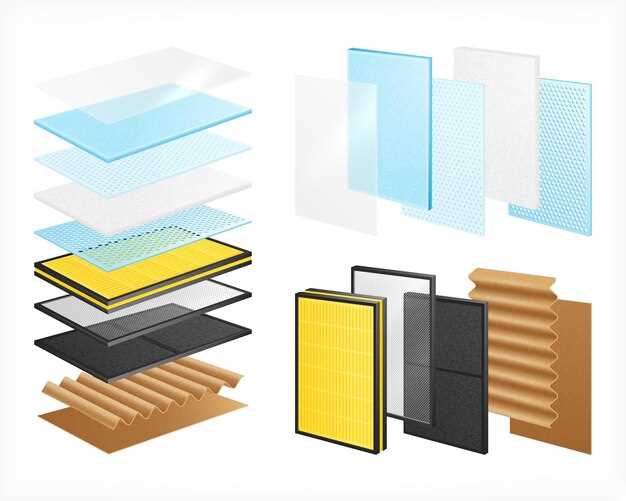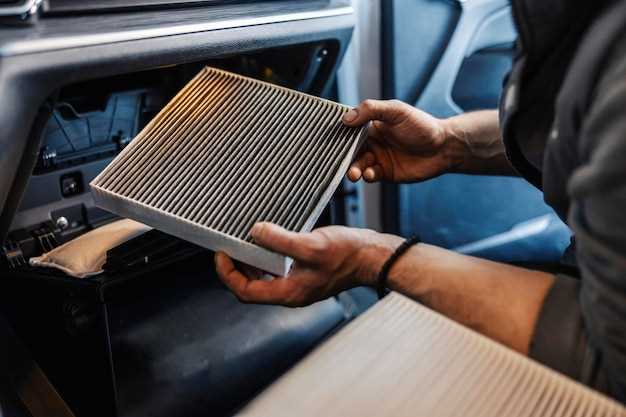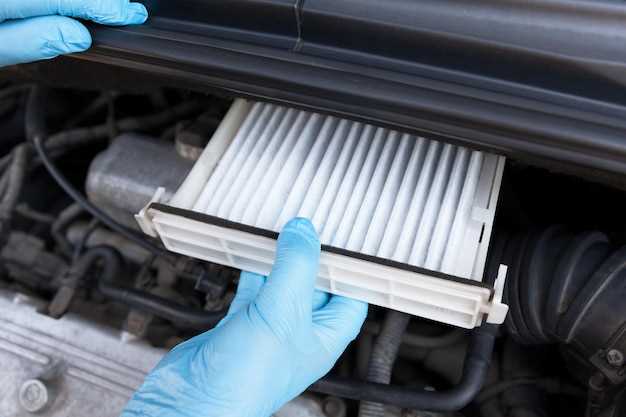The Importance of Cabin Air Filters

In modern vehicles, ensuring a comfortable and healthy environment for passengers is paramount. One critical component that contributes to this is the cabin air filter. This often-overlooked device plays a vital role in maintaining the quality of air within the cabin, filtering out harmful particles and allergens from the air that enters the vehicle.
Cabin air filters serve as a barrier against dust, pollen, and various pollutants, helping to create a more enjoyable driving experience. They work continuously while the vehicle’s ventilation system is in operation, effectively capturing contaminants that could affect passengers, particularly those with respiratory issues or allergies. Understanding how these filters function and their impact on air quality is essential for any vehicle owner.
Regular maintenance and timely replacement of cabin air filters are crucial to ensure optimal performance. Over time, these filters can become clogged, reducing their effectiveness and potentially compromising the air quality within the cabin. By familiarizing themselves with the importance of cabin air filters, drivers can take proactive steps towards safeguarding their health and enhancing their overall driving experience.
How Cabin Air Filters Improve Vehicle Air Quality

Cabin air filters play a crucial role in enhancing the quality of air inside vehicles. These filters are designed to capture a variety of airborne contaminants, including dust, pollen, smoke, and other pollutants. By trapping these particles, cabin air filters ensure that the air circulating within the vehicle is cleaner and healthier for passengers.
One of the primary functions of cabin air filters is to prevent dust and allergens from entering the cabin through the vehicle’s ventilation system. This is particularly beneficial for individuals with allergies or respiratory conditions, as it significantly reduces exposure to irritants while driving. Improved air quality can lead to a more comfortable environment, making long journeys more pleasant.
In addition to physical pollutants, cabin air filters also help to remove unpleasant odors that can accumulate over time. By filtering out smoke and other odorous substances, these filters contribute to a fresher-smelling interior, enhancing overall driving comfort. Regular maintenance and replacement of the cabin air filter are essential to maintain its effectiveness and ensure optimal air quality.
Moreover, clean cabin air filters can indirectly improve the efficiency of the vehicle’s heating and air conditioning systems. When filters are clogged with debris, airflow is restricted, causing the system to work harder to maintain the desired temperature. By ensuring that the filters are clean, drivers can improve the performance of these systems while also reducing energy consumption.
To summarize, the importance of cabin air filters in improving vehicle air quality cannot be overstated. By effectively filtering out pollutants and allergens, they create a healthier driving environment, enhance comfort, and support the efficiency of the vehicle’s climate control systems. Regular replacement and maintenance are key to reaping these benefits and ensuring that passengers enjoy clean, quality air during their travels.
Signs That Your Cabin Air Filter Needs Replacement

One of the primary indicators that your cabin air filter requires replacement is a noticeable decrease in air quality inside your vehicle. If you begin to experience musty or unpleasant odors emanating from the vents when the air conditioning or heating is in use, it suggests that contaminants have built up within the filter.
Another sign is reduced airflow through the cabin vents. If you notice that the air feels weak or insufficient despite setting the climate control system to maximum, this can indicate that the cabin air filter is clogged and needs to be changed.
Additionally, increased levels of dust and debris accumulating on the dashboard or seats are telltale signs that your cabin air filter is not effectively trapping particles. A filter that is past its prime will allow more pollutants to circulate, compromising the overall air quality within the car.
Furthermore, seasonal changes can also impact the necessity for replacement. During pollen-heavy months, if you find that the filter is not adequately keeping allergens at bay, it’s time for a replacement to ensure clean, breathable air.
Lastly, if you frequently drive in urban areas with high traffic pollution or in dusty environments, it’s advisable to inspect your cabin air filter more regularly, as these conditions can accelerate its deterioration. Regular maintenance checks can help in identifying when it’s time for a change, ensuring a healthier driving experience.
Choosing the Right Cabin Air Filter for Your Vehicle
Selecting the appropriate cabin air filter is essential for maintaining a comfortable and healthy environment inside your vehicle. The cabin air filter plays a crucial role in trapping dust, pollen, and other airborne particles, ensuring that the air you breathe remains clean and free of contaminants.
When choosing a cabin air filter, first consider the quality of the filter. High-quality filters typically offer better filtration efficiency, capturing a higher percentage of harmful particles compared to lower-quality options. Look for filters that are made from advanced materials, such as HEPA or activated carbon, which can enhance air circulation while effectively removing odors and allergens.
Compatibility with your specific vehicle model is another important factor. Ensure that the filter you select matches the manufacturer’s specifications for your car. Using an incompatible filter may not provide adequate filtration or could result in improper fitment, leading to potential damage.
Additionally, pay attention to the maintenance schedule recommended by your vehicle’s manufacturer. Regularly replacing your cabin air filter, as advised, will help maintain optimal air quality within the cabin. A clogged or worn-out filter can reduce airflow and strain your vehicle’s ventilation system, impacting overall performance.
Lastly, consider purchasing cabin air filters from reputable brands or authorized dealerships. These options often provide a higher assurance of quality and performance compared to generic or low-cost alternatives. Investing in a reliable cabin air filter will ensure a healthier driving experience, allowing you to enjoy every journey with peace of mind.

